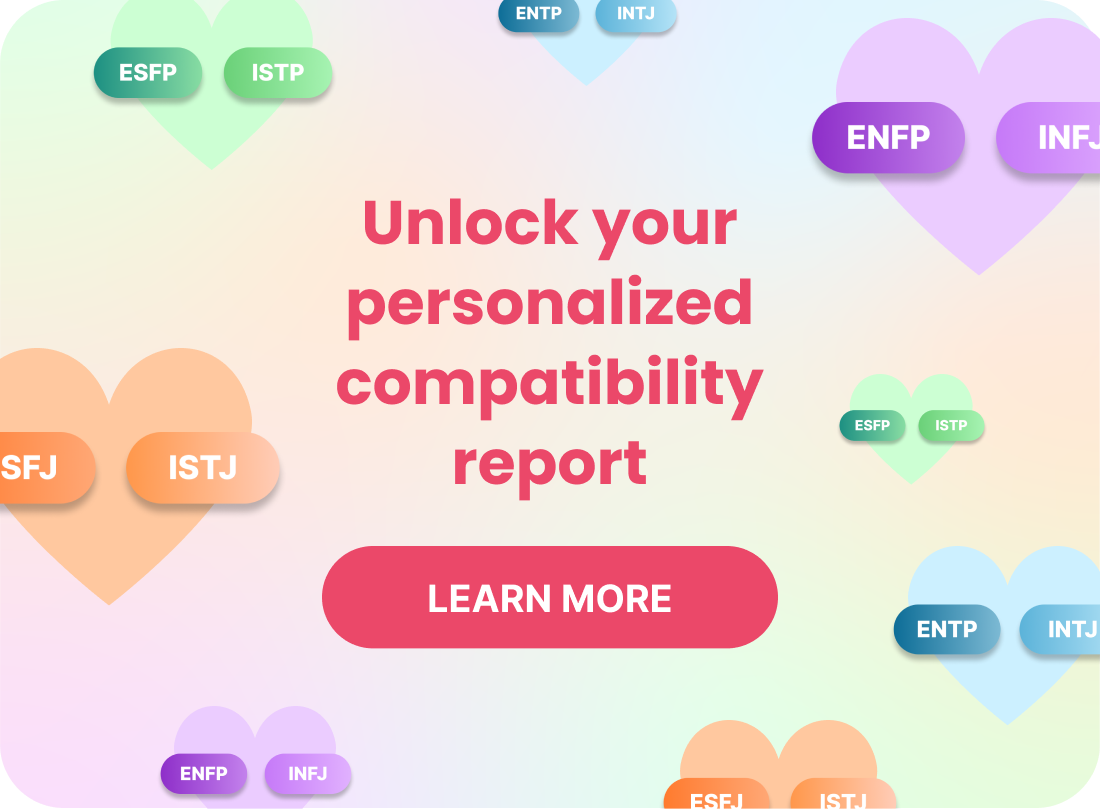15 Most Common ISTJ Weaknesses
So you’re an ISTJ personality type, and you’re looking to learn more about ISTJ weaknesses? You’ve come to the right place.

So you’re an ISTJ personality type, and you’re looking to learn more about ISTJ weaknesses? You’ve come to the right place.
If you’ve read descriptions about the ISTJ personality type, you’ll likely have heard many times that you’re organized, reliable, and loyal. While all of that is true, every personality type has its weaknesses. No one is organized, reliable, and loyal all of the time!
Instead of trying to hide or gloss over these weaknesses, it’s better to acknowledge them and learn how to work with them. So, let’s do just that and take a look at the 15 most common weaknesses of the ISTJ personality type.
If you’re taking the time to read this blog post, you’re likely very self-aware, which is a great starting point.
15 most common ISTJ weaknesses
Right, let’s get stuck in. And just to warn you, we’re not going to hold back on this one…
1. Blunt.
ISTJs can sometimes be too blunt. They’re often very direct, and they don’t have much patience for beating around the bush. This can make them seem insensitive or even rude. It’s important for ISTJs to remember that not everyone appreciates directness in the same way that they do. They need to be careful that they don’t say something that might hurt someone’s feelings. Sometimes, it’s better to sugarcoat things a little bit.
2. Inflexible.

ISTJs can also be quite inflexible. They like things to be done a certain way, and they’re not always willing to budge on their opinions. This can make them seem inflexible or even stubborn. It’s important for ISTJs to remember that it’s okay to just work things out as you go along sometimes. Being inflexible can mean that you can miss out on opportunities and make life more stressful than it needs to be. You don’t need to be changing plans all the time, but there are times when it’s better to just go with the flow.
3. Perfectionist tendencies.
ISTJs often have perfectionist tendencies. They like everything to be just right, and they can get frustrated when every single detail isn’t exactly how they think it should be. This need for perfection can be exhausting and unnecessary. It’s important to remember that no one is perfect and that mistakes are part of life. In fact, mistakes can be good. They help us to learn and grow as people. Pursuing perfectionism can lead to a lot of unnecessary stress, and it can mean that you miss out on enjoying life.
4. Insensitive.
ISTJs can sometimes come across as insensitive. This is because they’re not always aware of the feelings of others. They’re more focused on the here and now and what needs to be done rather than on emotional nuances. This means that ISTJs can sometimes unintentionally hurt people’s feelings or say things that are offensive. It doesn’t usually come from a bad place, and they don’t intend for this to happen. It’s not a weakness that is present in all ISTJs, but it’s something to be aware of.
5. Judgmental.
ISTJs can be judgmental. They often have a very clear idea in their heads of how people should behave. This can make them quick to judge others who don’t meet their standards or take the same approach that they would. It’s important for ISTJs to remember that not everyone is the same. People have different values, and they approach things in different ways. That’s one of the things that make the world such a beautiful and diverse place. Everyone has different personalities and priorities in life, so there’s no one ‘right’ path.
6. Stubborn.
ISTJs can be quite stubborn. Once they have decided something, it can be very hard to convince them otherwise, even if you have good reasons. Once they have decided on a course of action or a point of view, they like to stick with it because it feels safe and secure to them. It comes from their deep-seated need for clarity. This can be frustrating for people who are trying to get them to change their minds. Ultimately, staying open-minded to new ideas can be incredibly powerful and can enrich your life in many ways. So, it’s something for ISTJs to bear in mind.
7. Struggle with abstract concepts.
ISTJs can struggle to deal with abstract concepts. This is because they’re so logical and detail-oriented. They like things to be concrete and straightforward. Abstract concepts can be confusing for them because they can’t always see how they fit into the big picture, and they don’t always see the point in discussing ideas. They’re the kind of people who would rather just get on with things. But theoretical conversions can be useful. They can help you to see the world in different ways and to come up with new solutions to problems.

8. Uptight.
ISTJs can be quite uptight. They feel a sense of security from knowing what’s going to happen next, and they can get stressed out when things don’t go according to plan. Ultimately, they don’t tend to handle unpredictability well. This can make them seem rigid. It’s important for ISTJs to learn to go with the flow sometimes and to be okay with not having everything planned out in advance. Taking a more easygoing approach can make life more enjoyable and less stressful. Micromanaging every aspect of a situation is exhausting and takes a lot of energy. There’s a time and a place for this, but it shouldn’t be the norm.
10. Critical.
ISTJs can be quite critical. They can get frustrated when people don’t meet their standards. These high standards, combined with their direct communication style, can make them come across as critical. In general, they will calmly but firmly voice their opinions when they think that someone hasn’t done a good job. However, criticizing people all the time isn’t helpful, and it can make people feel bad about themselves. It’s necessary in some situations, but too much of it won’t result in a supportive, motivating environment. ISTJs tend to be highly critical of themselves, too.
11. Difficulty dealing with emotions.
ISTJs can sometimes find it difficult to deal with emotions. This is because they’re more logical than emotional. They can find it hard to handle their own feelings, let alone those of others. Sometimes, they try to rationalize their emotions away, or they bottle them up inside. This might make them feel better in the moment, but it’s not a healthy long-term strategy. It’s a good idea for ISTJs to learn how to get in touch with their emotions and process them in a healthy way. This isn’t an easy undertaking, but it’s worth it. Doing this will make you a more well-rounded person and help you better understand and connect with the people around you.
12. Too serious.

ISTJs can be too serious. They’re often the ones who are keeping things running smoothly and efficiently, but they can forget to have fun sometimes. This can make them appear standoffish. They can get so wrapped up in their work or their responsibilities that they can end up not finding time to relax and enjoy themselves. Making time for leisure activities can have a positive impact on your well-being, and it can make you more productive when you’re working. In addition, it plays a fundamental role in your ability to enjoy life.
12. Risk-averse.
ISTJs are often risk-averse. They like to play it safe, and they don’t like change. Seeing as they place a lot of value on security and predictability, they can be reluctant to take risks. This can hold them back in life, though, as taking risks is often necessary in order to achieve success. It’s important for ISTJs to learn to identify which risks are worth taking and which ones aren’t. They should also remember that change isn’t always a bad thing – even though it might not be comfortable while it’s happening, it can have positive outcomes, and you’ll always learn from it.
13. Overly focused on rules.
ISTJs can be overly focused on rules. They take the view that rules exist for a reason, and they can get frustrated when people don’t follow the rules. Seeing as they always follow the rules themselves, they can’t understand why other people don’t do the same. This inflexible attitude can make them seem unreasonable at times. It’s necessary to follow rules in some situations, but there are also times when it’s ok to bend or break the rules. It can be dangerous to always blindly follow rules and guidelines without thinking critically about them.
14. Narrow-minded.
ISTJs can be narrow-minded. This is because they can take quite a black-and-white approach. They like things to be clear, and they often just want to get on with it. They’re not always open to hearing about different points of view. This can make it difficult for ISTJs to accept new ideas and be open to different ways of doing things. This can limit their ability to be creative and come up with new solutions to problems. In addition, it means that they can miss out on interesting points of view which could have helped them in various ways.
15. Struggle to see the big picture.
ISTJs can sometimes struggle to see the big picture. This is because they’re so focused on the details. It’s worth noting that this laser focus can be helpful in some situations, and it is also one of their strengths. But it can mean that ISTJs miss the forest for the trees, so to speak. It’s important for ISTJs to remember to step back and take a look at the big picture every once in a while. This can put things into perspective and help ensure that all the hard work that they’re putting in is worth it. After all, there’s no point in moving fast and efficiently in a certain direction if it’s the wrong way to be going.
Final thoughts on ISTJ weaknesses
So there you have it: the 15 most common ISTJ weaknesses wrapped up nicely into one little blog post for you. You might also enjoy our post about ESTJ weaknesses.
We hope you found this helpful and that you can use this knowledge to become even more self-aware and work on yourself. ISTJs are amazing people with a lot to offer, but like everyone, they’re not perfect.
Just remember that not all ISTJs will show all of these weaknesses. These are just general tendencies that are common among ISTJs. So don’t worry if you don’t identify with all of them – it doesn’t mean that you’re not an ISTJ.
Finally, don’t forget to share this post with your friends and followers – knowledge is power, and knowing your weaknesses can help you work on them and become even stronger.




